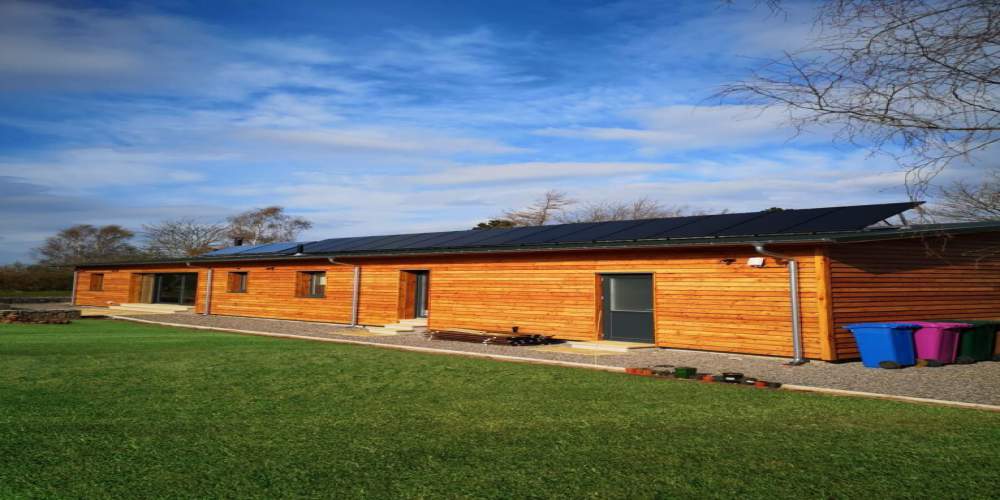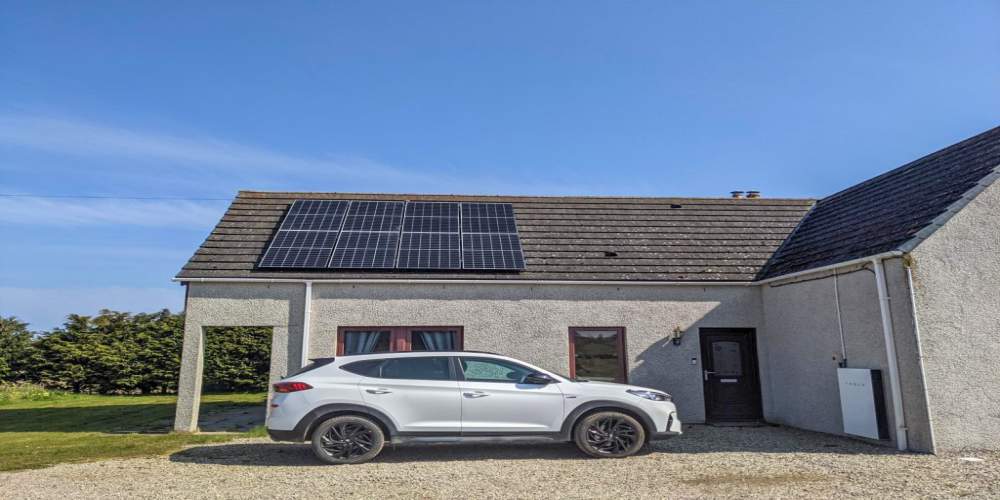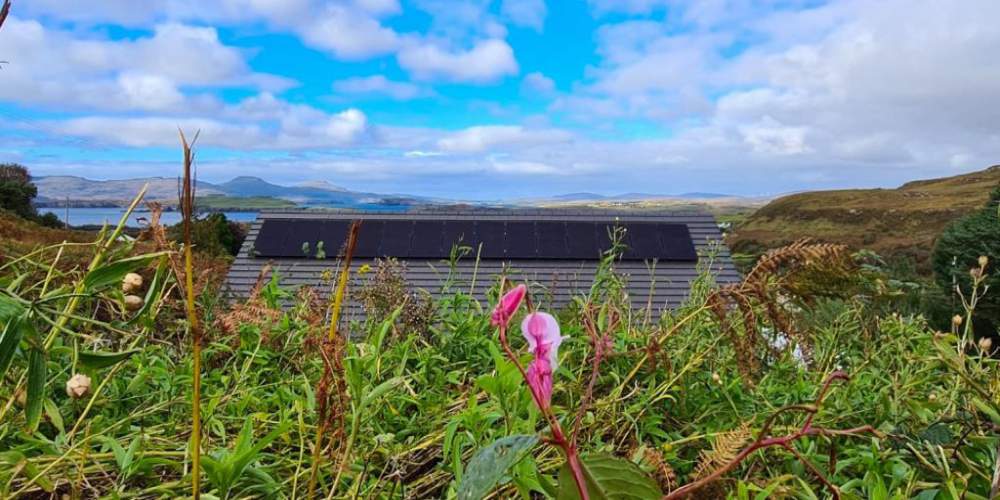Congratulations! You’ve decided to take the first step towards energy independence and a solar-powered future. There is a lot to consider before and after installing a solar energy system, making it seems like a daunting prospect from the outset. However the benefits of installing solar are brilliant, helping to reduce your energy bills and household carbon footprint.
Next step: Find an accredited and trustworthy solar installer in your area. Choosing the right installer for your solar installation is extremely important in making the process as straightforward as possible for you. With rogue installers, poor quality work and even scammers existing in what is otherwise a reputable industry it’s important to find an installer you can trust. Our useful guide will help to ensure you cover all the important steps to help you choose the right installer for your individual needs.

What are you looking for?
Although your chosen installer (more on that later) will be able to discuss your needs and requirements it is beneficial to have an idea of the problem you would like to solve. If you want to lower your electricity bills or will be purchasing an EV shortly then solar PV is the place to start. If you are not home during the middle of the day or you want to safeguard your home from power cuts, then battery storage is a worthwhile investment. And if it’s expensive gas or oil bills you’re worried about then solar thermal is for you. These solar technologies often work hand in hand with each other too or can complement other renewable technology such as heat pumps.
Once you have a basic idea of the technology, you’re interested in you can then contact installers that specialise in this technology. These solar installers will be able to talk you through all your options as well as take into consideration any future plans to shine some light on the best solar solutions for your home.

Where to start?
Word-of-mouth Recommendations
A good recommendation from a trusted friend, family member, or even a neighbour can be worth its weight in gold. Do you know someone who recently had similar work carried out? Ask them about their overall experience with the company and even go to check out the system in person if you can. This can put your mind at ease if you have heard good things and seen their handiwork first-hand.
Online Databases
There are a number of online databases, such as The Renewable Energy Hub, which exist to make customers aware of companies operating in their local area. For small-scale renewable energy technology, we would also highly recommend the Microgeneration Certification Scheme (MCS) database. The MCS is a quality assurance scheme supported by the UK Government, which certifies products and installers. This will also come in handy further down the line should you wish to be eligible for the financial incentive schemes such as the smart export guarantee.
If you live in Scotland, you can also find installers in your area (as well as customer reviews!) on Energy Saving Trust's: Renewables Installer Finder.
COMPARE PRICES FROM LOCAL INSTALLERS
Compare prices from local companies fast & free
Enter your postcode to compare quotes from leading professionals. We promise to keep your information Safe & Secure. Privacy Policy
Online Search
A general online search can also be carried out in conjunction with one of the above methods or used in its own right. Online searches can be useful to see the professionalism of a company. Although it’s important to note a good website is not everything it can give clues to the legitimacy of a company such as if they publicise their business premises and landline phone number. You can also use it to look for any current work pictures and other information such as length of time operating.

Now a few Dos and Don’ts
Do
- Shop around a little and get at least three written quotations clarifying the position on VAT. This will allow you to judge the true price of the work. This also protects you from a busy installer putting in a disproportionately high quote. And be suspicious if the cheapest quotation is 25% (or more) cheaper than the next lowest and question what corners they have cut to make it pay.
- Check out any reviews of the company if available. This can include Google, Yelp and even social media platforms such as Facebook allow previous customers to leave reviews. Don’t forget to investigate the Energy Saving Trust’s Renewable Installer Finder if you live in Scotland for impartial customer reviews.
- Go for a company registered with a government approved membership scheme provider. This ensures installers meet strict qualification requirements and are regularly assessed to ensure their ongoing competence. For solar this will mean ensuring your installer and product must be certified under the MCS or other relevant body. Other schemes worth checking include Trading Standards and TrustMark.
- Check if they belong to any other trade or professional organisations such as Renewable Energy Assurance Limited (REAL), National Association of Professional Inspectors (NAPIT), Renewable Energy Consumer Code (RECC), and Solar Energy UK. These bodies offer a quality benchmark that both professionals and consumers can recognise. Remember it’s always a good idea to check they really belong to the organisation, using the registration body’s online search facility.
- Ask if the work is covered by any independent guarantee or warranty. The company installing your solar panels will usually offer two separate warranties. One which covers the product itself and one which covers the workmanship. Before going ahead with any installation, always check out the warranties and guarantees as they can vary from installer to installer. Generally speaking, the work will be covered for anything between 5 to 10 years, whilst the panels will be guaranteed for 20-25 years.
- Make sure the installer is insured. That way, if materials get stolen, damage is caused, or the work simply has to be redone, you’ll be covered for the extra cost. And don’t just take their word that they have insurance – ask to see the proof.
- Ask questions! It’s important you feel comfortable before you hire an installer. This way you will know what to expect when works begin. Questions can include: Who will be the main point of contact during the project? How long will the installation take? What hours will they be working on your property or business? Consider a company unwilling or dodging your questions as a red flag!
- Be wary. If an installer is immediately available ask yourself why that is? Likewise, be wary of heavy-handed sales techniques, such as pressure to sign on the day, high prices with large discounts for signing on the spot, or bogus monitoring scheme discounts.

Don’t
- Solely rely on recommendations from friends and family. Although this is a great starting point it’s always best to carry out further research to make sure they are the right installer for your job requirements…not just someone else’s.
- Trust installers who only operate with a mobile phone number with no other contact details or business address. Phone numbers can easily be changed making the installer completely uncontactable and potentially leaving you in the lurch with unfinished work.
- Take membership of government and industry schemes at face value. Anyone can copy and paste an accreditation logo onto their website. Instead, search for the company on the website database.
- Employ anyone who comes round cold calling at your door. Solar scammers often operate in this way offering unsolicited services, and no reputable trader gets work by cold calling on strangers.
- Get fooled by low quotes. If it seems too good to be true - it often is. Instead, go with a solar company you trust to do a good job. Good installers who refuse to cut corners will seldom be able to compete on price with those that do.
- Rely on a verbal quote – get it in writing. You should also ask for a breakdown, with materials, labour and any additional costs all detailed individually so that you can see how the total has been calculated.
- Pay for work upfront. A small deposit that can vary depending on your project is acceptable to place your order but anything over 25% of the total cost should only be paid on completion of the works.
Ultimately, the individual or company you select for your project will determine the quality of the final result. Taking the first step towards a renewable future is a daunting prospect but also a very exciting time. Don’t let a cowboy installer or poor workmanship dull your shine.




























